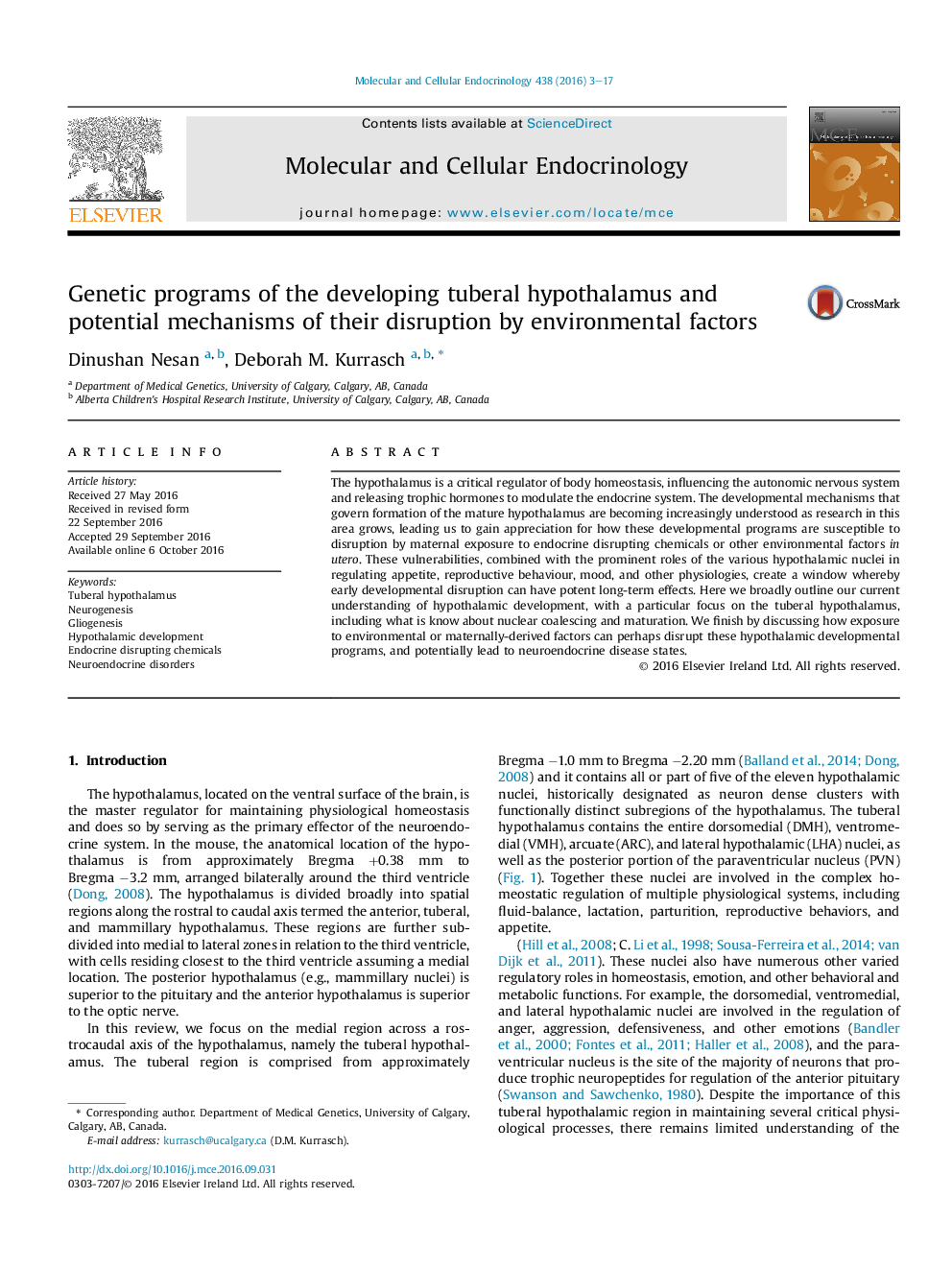| Article ID | Journal | Published Year | Pages | File Type |
|---|---|---|---|---|
| 5534247 | Molecular and Cellular Endocrinology | 2016 | 15 Pages |
â¢The mechanisms of hypothalamic development remain poorly elucidated.â¢Evidence indicates fetal hormone exposure modulates hypothalamic development.â¢Hypothalamic maldevelopment alters adult mood, behavior, physiology, homeostasis.â¢Studies show tuberal hypothalamic development is sensitive to endocrine disruption.â¢The effects of endocrine disruptors on hypothalamic development is underexplored.
The hypothalamus is a critical regulator of body homeostasis, influencing the autonomic nervous system and releasing trophic hormones to modulate the endocrine system. The developmental mechanisms that govern formation of the mature hypothalamus are becoming increasingly understood as research in this area grows, leading us to gain appreciation for how these developmental programs are susceptible to disruption by maternal exposure to endocrine disrupting chemicals or other environmental factors in utero. These vulnerabilities, combined with the prominent roles of the various hypothalamic nuclei in regulating appetite, reproductive behaviour, mood, and other physiologies, create a window whereby early developmental disruption can have potent long-term effects. Here we broadly outline our current understanding of hypothalamic development, with a particular focus on the tuberal hypothalamus, including what is know about nuclear coalescing and maturation. We finish by discussing how exposure to environmental or maternally-derived factors can perhaps disrupt these hypothalamic developmental programs, and potentially lead to neuroendocrine disease states.
